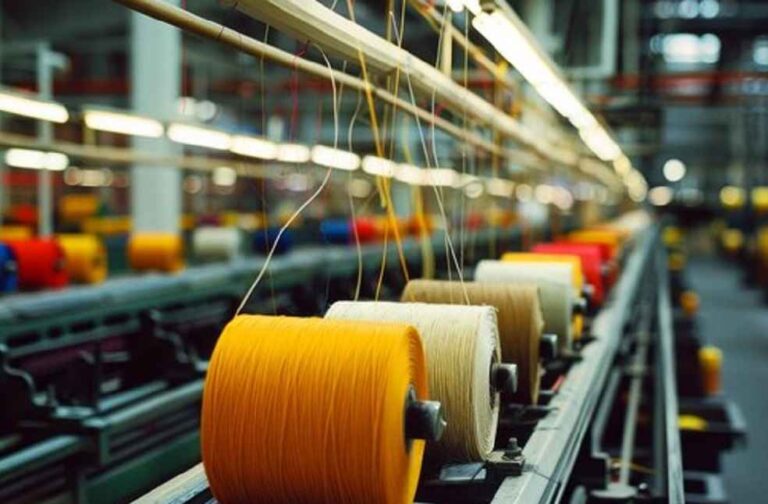Bangladesh’s cotton and yarn imports plummeted in the first nine months of 2023, driven by declining demand in global and local markets, erratic gas supplies, and the ongoing US dollar crisis.
Sharp Decline in Imports
According to the Bangladesh Textile Mills Association (BTMA), cotton imports fell by 28% year-on-year to 9.87 lakh tonnes from January to September, compared to 13.66 lakh tonnes during the same period in 2022. Similarly, yarn imports dropped 26%, reaching 6.29 lakh tonnes compared to 8.51 lakh tonnes a year earlier.
The slump comes as Bangladesh’s readymade garment (RMG) sector—accounting for over 80% of the country’s export earnings—faces reduced export growth. While apparel exports grew nearly 6% to $38.7 billion in January-October 2023, compared to $36.6 billion in the same period last year, October’s garment shipments fell 14% year-on-year, signaling slowing demand.

Causes of the Decline
Industry experts attribute the downturn to several factors:
Global Demand Slump: Global demand for textiles has dropped by 25-30%, according to A. Matin Chowdhury, managing director of New Asia Group.
Energy Supply Issues: Erratic gas supply has disrupted production, while high gas prices continue to strain mills. In January, the government raised gas prices by up to 178.9% to reduce subsidies.
Dollar Crisis: The taka has depreciated by nearly 30% against the US dollar since January 2022, increasing import costs. A shortage of dollars has also restricted access to the Export Development Fund (EDF), essential for importing raw materials.

Impact on Local Mills
Local mills, which supply 90% of raw materials for export-oriented knitwear and 40% for woven garments, are struggling to stay afloat. Many domestic market-oriented mills have suspended production due to raw material shortages. BTMA President Mohammad Ali Khokon emphasized that the sector needs government and bank support to survive until conditions improve, potentially by March 2024.
Capacity and Recovery Challenges
Mohammad Hatem, executive president of the Bangladesh Knitwear Manufacturers and Exporters Association, noted that most knitwear factories are operating at 50-60% capacity as buyer orders dwindle. “There is no sign of recovery in the order flow,” he added.
Chowdhury highlighted additional concerns over energy supplies, stating, “We are getting a bleak picture in terms of gas supply.” With demand stagnant despite capacity expansion, the coming months are expected to be ‘extremely challenging’ for the sector.
TRADE WORLD | French Farmers Protest EU-Mercosur Trade Agreement



